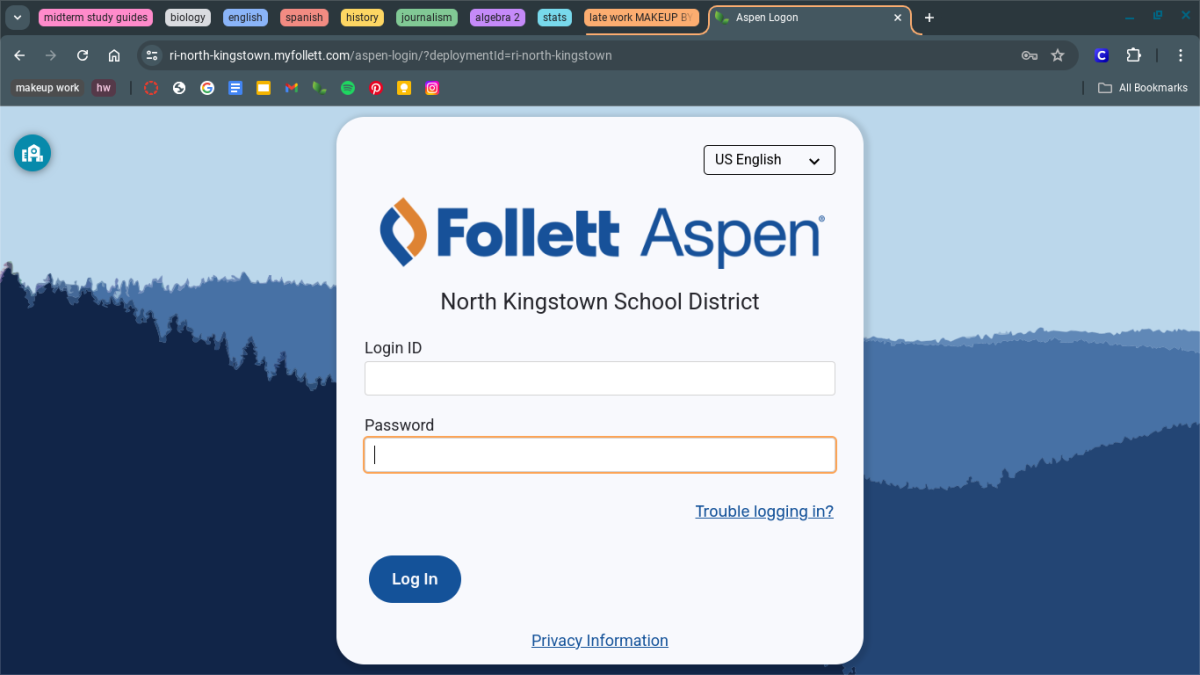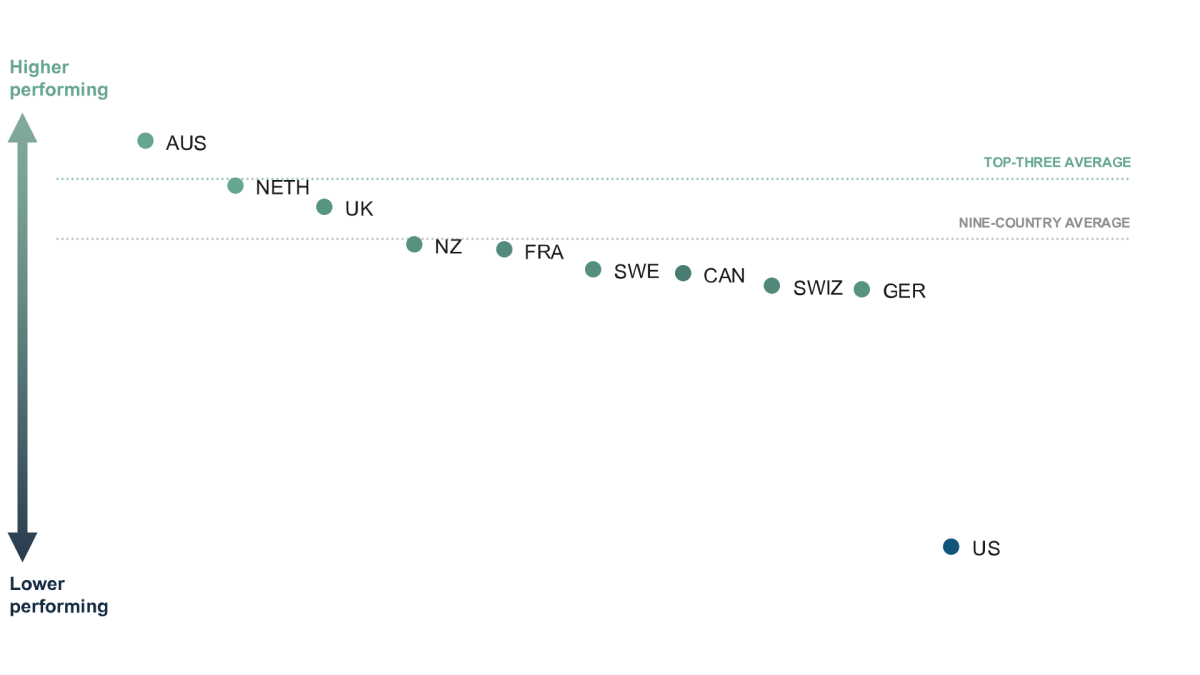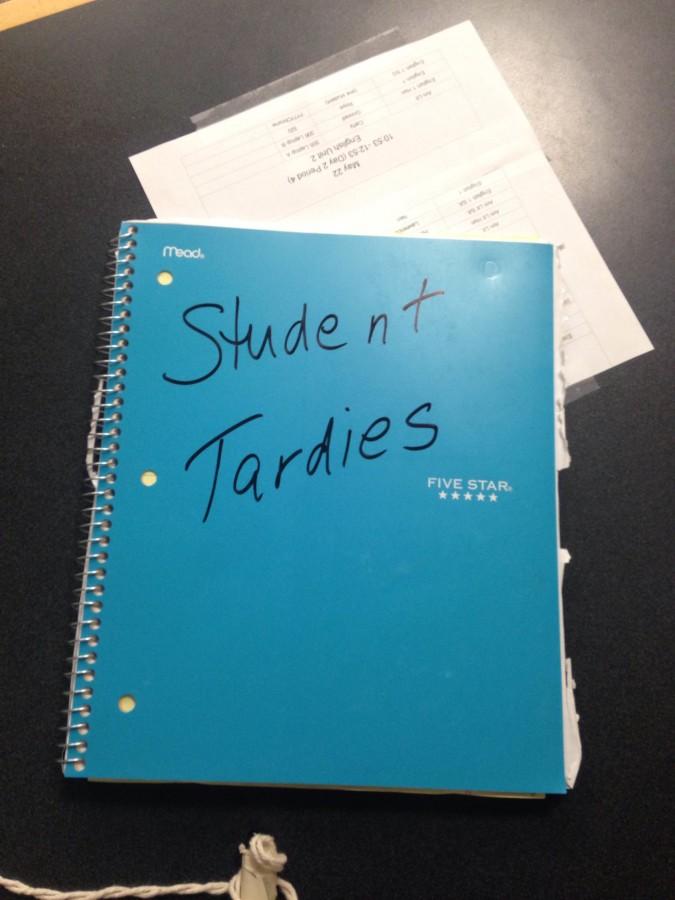Staff editorial – Absences and tardies: The school’s system
This is the book in the office that keeps track of which students are tardy and how frequently they are.
Every student can relate: rushing into school at 7:13 with your hair a mess and your backpack slung sloppily over one shoulder. There isn’t enough time to go to your locker to deposit your backpack, so you head to your first period class instead. The bell rings while you are steps away from the classroom and you cross the threshold to safety as you hear a friendly reminder to go to guidance for a late pass if you are still in the hallway.
Being late to school or absent happens to students all the time and in most cases, it is unavoidable. However, many NK students are confused with the way the system works.
The Current Wave staff wanted to shed some light on the subject, and a recent interview with interim assistant principal Mr. John Lalli helped to do just that.
When the office asks you for a form of verification when you leave early, such as a doctor’s note, they are asking so that your absence can be considered excused. They stress this policy because if a student can not bring proof that the absence was excused, then they will not be subject to the make-up policy that is explained in the handbook. Lalli said, “We are trying to do everything we can to make sure the students are here.” The administration believes that when students miss a day they are missing out on information.
Many students are confused as to why a parent taking their child out of school would not count as an excused absence, even though the parent is their legal guardian. “We cannot tell a parent not to take their child out of school, but it is their decision and there could be a consequence,” said Lalli. “It is not fair to the students who are here every day.”
Another area of confusion stems from the tardy system. According to the student attendance section of the handbook, a student will have his or her parking pass taken away they have eight tardies in a quarter, but in the student parking section it says a parking pass will be taken away if there is a total of five tardies. According to Mr. Lalli, that is a mistake that will most likely be fixed over the summer, but at the moment he is not sure whether it will be changed to allow five tardies or eight.
Students have also seen their classmates come into class, only to be pulled out 30 seconds later by an administrator to go get a pass. “At some point you have to pay the price or there has to be discipline,” said Lalli. “We can’t just let it continue, and need to asknowledge it in one way or another, whether it is through [revoking] a parking pass or social privilege.”
The administration wants students be on time but don’t want them to be at risk. They would rather have a student be 15 minutes late than be in jeopardy because they are driving too fast. The rules they have in place are not to get the students who are late because of something they could not control, but rather the students who felt the need to stop for a large iced coffee from Dunkin’ Donuts rather than be in school for all of first period. Tardies are in place to count against the students who disregard being at school on time and the responsibility that comes with that.
Students do appreciate that the bells are held on days where the weather can delay the commute to school. It is tough to expect 16 through 18 year-olds to get to school on time when they are at the risk of car accidents and have to drive at slower speeds and be more cautious for their safety. This led to more confusion on March 5, when it snowed all day, but students were in school 7:15 to 1:45 as usual. Students were stranded in the parking lots, and plows arrived to the junior lot just as lucky students who had managed to escape were sliding out onto the street.
The Current Wave staff would like to stress that they are not trying to accuse or take a stand against the administration in place. The current attendance and tardy policy is well intentioned and it is believed that if it weren’t worth being in school they wouldn’t enforce one. Lalli said, “It is not an ‘I gotcha’ concept, it is to make sure [that] the students get to experience the magic of the classroom.”
Your donation will support the student journalists of North Kingstown High School. Your contribution will allow us to distribute a print edition of the Current Wave to all students, as well as enter journalism competitions.











